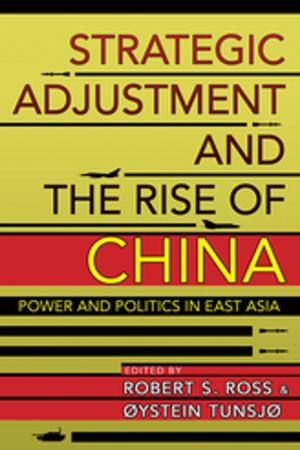Strategic Coupling
East Asian Industrial Transformation in the New Global Economy
Nonfiction, Social & Cultural Studies, Political Science, Politics, Economic Conditions, History, Asian, Asia, Business & Finance| Author: | Henry Wai-chung Yeung | ISBN: | 9781501704260 |
| Publisher: | Cornell University Press | Publication: | May 24, 2016 |
| Imprint: | Cornell University Press | Language: | English |
| Author: | Henry Wai-chung Yeung |
| ISBN: | 9781501704260 |
| Publisher: | Cornell University Press |
| Publication: | May 24, 2016 |
| Imprint: | Cornell University Press |
| Language: | English |
In Strategic Coupling, Henry Wai-chung Yeung examines economic development and state-firm relations in East Asia, focusing in particular on South Korea, Taiwan, and Singapore. As a result of the massive changes of the last twenty-five years, new explanations must be found for the economic success and industrial transformation in the region. State-assisted startups and incubator firms in East Asia have become major players in the manufacture of products with a global reach: Taiwan's Hon Hai Precision has assembled more than 500 million iPhones, for instance, and South Korea’s Samsung provides the iPhone’s semiconductor chips and retina displays.Drawing on extensive interviews with top executives and senior government officials, Yeung argues that since the late 1980s, many East Asian firms have outgrown their home states, and are no longer dependent on state support; as a result the developmental state has lost much of its capacity to steer and direct industrialization. We cannot read the performance of national firms as a direct outcome of state action. Yeung calls for a thorough renovation of the still-dominant view that states are the primary engine of industrial transformation. He stresses action by national firms and traces various global production networks to incorporate both firm-specific activities and the international political economy. He identifies two sets of dynamics in these national-global articulations known as strategic coupling: coevolution in the confluence of state, firm, and global production networks, and the various strategies pursued by East Asian firms to attain competitive positions in the global marketplace.
In Strategic Coupling, Henry Wai-chung Yeung examines economic development and state-firm relations in East Asia, focusing in particular on South Korea, Taiwan, and Singapore. As a result of the massive changes of the last twenty-five years, new explanations must be found for the economic success and industrial transformation in the region. State-assisted startups and incubator firms in East Asia have become major players in the manufacture of products with a global reach: Taiwan's Hon Hai Precision has assembled more than 500 million iPhones, for instance, and South Korea’s Samsung provides the iPhone’s semiconductor chips and retina displays.Drawing on extensive interviews with top executives and senior government officials, Yeung argues that since the late 1980s, many East Asian firms have outgrown their home states, and are no longer dependent on state support; as a result the developmental state has lost much of its capacity to steer and direct industrialization. We cannot read the performance of national firms as a direct outcome of state action. Yeung calls for a thorough renovation of the still-dominant view that states are the primary engine of industrial transformation. He stresses action by national firms and traces various global production networks to incorporate both firm-specific activities and the international political economy. He identifies two sets of dynamics in these national-global articulations known as strategic coupling: coevolution in the confluence of state, firm, and global production networks, and the various strategies pursued by East Asian firms to attain competitive positions in the global marketplace.















